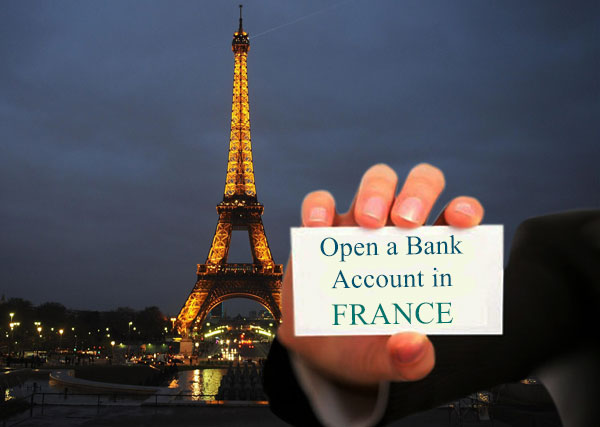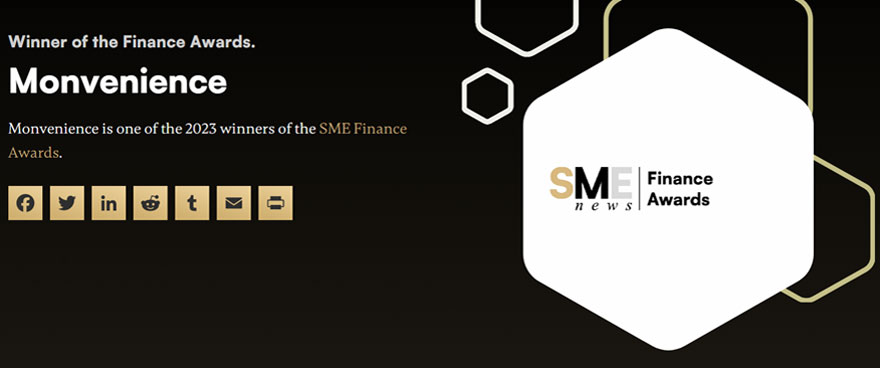Open A Bank account in France
Embarking on the journey to open a bank account in France? Welcome to a seamless financial experience in one of Europe's vibrant countries! Whether you're a resident or a non-resident, navigating the process of setting up a bank account can be a key step in managing your finances effectively. In this guide, we'll walk you through the essential steps, requirements, and considerations involved in opening a bank account in France. From understanding the necessary documentation to choosing the right type of account for your needs, let's embark on a hassle-free exploration of the French banking landscape. Ensure a smooth transition into the world of French banking, where convenience meets financial stability.
How to open a bank account in France
France is charming, to say to least. Those azure beaches, those vibrant cities, brisk business, cosmopolitan crowd, rich culture and the Parisian walks. No wonder expatriates and students succumb to her charms alike, along with entrepreneurs.
If you intend to stay in France, or start a business, you will need to know about the banking services available in France.
L'option de compte bancaire en ligne avec Monvenience vous offre un compte bancaire dédié en euros, avec IBAN illimité.
Essayez le compte IBAN de Monvenience.com. Il est gratuit pour les citoyens de l'UE et du Royaume-Uni, payant pour les autres. Vous pouvez également ouvrir un compte d'entreprise, même si votre entreprise n'est pas enregistrée dans l'UE. Les documents de votre pays d'origine sont acceptés pour l'ouverture de compte, ainsi que les documents de votre entreprise (si votre compte IBAN est une entreprise). Toutes les demandes se font en ligne, sans déplacement à la banque. Documents faciles à remplir. Rendez-vous sur www.Monvenience.com et demandez votre compte IBAN international avec les systèmes SWIFT et SEPA. Vous pouvez utiliser ce compte dans n'importe quel pays européen, mais veuillez noter qu'il s'agira d'un IBAN LT. Si votre entreprise nécessite un IBAN français, vous devrez consulter le guide ci-dessus et choisir une banque française adaptée à vos besoins. Cliquez ici pour ouvrir votre compte dès maintenant!

To open an IBAN account in France, you can follow these general steps:
Choose a Bank:
Research and choose a bank in France that offers IBAN accounts and meets your requirements. Popular banks in France include BNP Paribas, Société Générale, Crédit Agricole, and LCL. Monvenience offers fully online IBAN account, that are valid in France and rest of EU. No visits to the bank required. Transact at the conveniece of your home or office.
Gather Required Documents:
Prepare the necessary documents for the account opening process. These typically include:
- Valid passport or national ID
- Proof of address (e.g., utility bill, bank statement)
- Proof of income or employment (e.g., payslips, employment contract)
- French tax identification number (if applicable)
- Additionally, some banks may require additional documents or specific information. It's best to check with your chosen bank for their exact requirements.
Visit the Bank or Apply Online:
Depending on the bank, you may have the option to apply for an IBAN account online or in person. If online applications are available, visit the bank's website and locate the section for account opening. Follow the instructions to begin the application process. Alternatively, you can visit a branch of the bank in person and apply there.
Complete Application Form:
Fill out the application form with accurate and relevant information. Provide all the necessary details, such as personal information, contact details, and any additional information required by the bank.
Submit Documentation:
Provide the required documents to the bank. This may involve scanning or photocopying the documents and submitting them online or physically providing them at the branch. Ensure that the documents meet the bank's specifications for format and size.
Verification Process:
The bank will review your application and documentation for verification purposes. They may contact you for additional information or clarification if needed. This process may take some time, so be patient and responsive to any requests from the bank.
Account Approval:
Once your application is approved, the bank will provide you with your IBAN account details. This will include your IBAN number, which is a unique identifier for your account, and any other relevant information.
Fund Your Account:
Follow the bank's instructions to deposit funds into your new IBAN account. This can typically be done through a bank transfer from another account or by depositing cash or checks at the bank branch.
The specific steps and requirements may vary depending on the bank you choose. It's recommended to visit the website of the specific bank you're interested in or contact their customer service for detailed instructions and guidance throughout the account opening process.
Common documentation for bank account opening in France
The list of documents may vary from bank to bank, but the following are the most common:
- A proof of identity, such as a passport, a national identity card or a driving license
- Proof of address
- Proof of your visa
- Proof of employment or student status
- A utility bill
These documents should be translated in French as well and then certified or notarized. There may be additional document requirement, which you will come to know at the time of application.
Non Resident bank Account in France
There is a provision to deal with this special need and it is called non-resident account. Not many banks deal with this kind of accounts, and the few who do, will need a lot more documentation like your ability to pay for your living expenses in France, special higher fees and charges, and restrictions. It gets far easier if you are an EU citizen.
Thus, the IBAN account of Monvenience proves to be a better option, as you can have this European IBAN account with your own home documents, and business incorporation papers. Personal accounts for UK and EU citizens comes free of cost, and is chargeable for other citizens. Accounts can be opened online without any visits to the bank. Operation of accounts is also through your laptop or mobile phone.
Banking Service in France
France has one of the largest economy of the world, and so its banking services are far and wide, with many banks spread across the country. But, they are mostly NOT English speaking and they will speak French only. So if you do not know French, then you will need to carry a translator with you every time you visit a bank.
The most well-known French banks
Britline (Credit Agricole): With Britline, you can actually open an account before moving to France, which makes life a lot easier. You will need to furnish the proper documents as asked. Moreover, you can use your account in English, by phone or online, and the bank charges are shown on the bank’s website, in English as well.
BNP Paribas: One the biggest banks in France, has great penetration by way of distributors. You are sure to find one for you. Charges go down as you use the services more. They also provide low cost student’s account.
La Banque Postale: They utilize the postal service network, and thus you can always find one close to you. All applications and operations are done in French, and you must have a translator if you intend to use their service and do not know French.
ING Direct: The biggest online bank in France, and accounts come with debit card as well. But French is the language of their business, and if you do not know French, then you should always have a translator.
Note: Being in France, expect large price variations in service from bank to bank. Study the restrictions that come with free or low cost bank accounts, which actually make the accounts chargeable. Online banks may even charge you for sms or phone calls. French is the ruling language. Some banks close at lunchtime, so carefully check operation hours. Documentation requirement is pretty high, especially for non residents, and even non residents need to stay in France for opening accounts, and furnish their utility bill. Charges for taking money outside of European Union is also high, due to bank’s costs and exchange rates.
The Virtual Bank Account Option with Monvenience, who gives you a dedicated European, No Limit IBAN account
Try out the IBAN account of Monvenience.com. It is free for EU and UK citizens, chargeable for others. Corporate accounts can also be opened, even if the company is not incorporated in the EU domain. Your home country papers are accepted for account opening, along with your company papers (if company IBAN account). All applications are done online with no visits required to the bank. Easy documentation. Just visit www.Monvenience.com and apply for your International IBAN account with SWIFT and SEPA facilities. You can use this account in any European country, but please note, it will be an LT IBAN. So if your company requires an FR IBAN, you will still need to go to the guide given above, and choose a French bank as per your need.
Online Payroll Prepaid cards for France to anywhere in the world
Monvenience: Your All-in-One Prepaid Solution
Monvenience offers a flexible prepaid payroll card program that goes beyond just salaries. Our cards can be used for:
- Payroll: Disburse salaries and bonuses to your employees quickly and securely.
- Employee Expenses: Simplify travel and expense management with prepaid travel cards.
- On-Demand Funds: Provide instant access to funds for cardholders and stakeholders.
- Special Events: Issue prepaid cards for event participants for easy spending.
Benefits for Everyone
- Control for You: Track your spending precisely.
- Flexibility for Employees: Make purchases at stores, withdraw cash at ATMs, or pay bills online - all with one card.
Monvenience makes managing prepaid cards easy and efficient.
Frequently Asked Questions (FAQ)
1. Can foreigners open bank accounts in France?
Absolutely! Both French residents and foreigners can open accounts. The process might differ slightly for foreigners regarding documents, but it's generally achievable.
2. What documents do I need?
The exact requirements can vary by bank, but here's a common list:
- Completed application form: Available online or at the branch.
- Identification: Passport (most likely required for foreigners) or a valid French ID card.
- Proof of address: A recent utility bill (under 3 months old) or rental agreement in France works.
- Proof of residency: Visa or residence permit (for foreigners).
- Additional documents (bank-specific): Some banks may ask for a reference letter from your current bank, proof of income, or a student ID (if applicable).
3. Can I open an account online?
Many traditional banks offer online application starts, especially for basic accounts. However, completing the process and verification might require a visit to a local branch. Online banks typically allow a more digital approach.
4. What else should I consider?
- Shop around: Compare bank fees, account features, and online banking options before choosing.
- Resident vs. non-resident: Requirements might differ slightly for residents (they may not need a visa document).
- Tax implications: Understand any tax reporting requirements for holding a foreign bank account.
Click Here To Open Your Account
Monvenience extends fiat bank account or IBAN Account online for acting as the fiat account counterpart for your digital exchange or crypto assets trading exchange. However, the exchange must be a reputed one, and you should have sufficient proof of holding your account with the exchange. It is a compliance decision, when your application will be reviewed, for extending our services. Please apply for your bank account online to find out the requirements.

© 2026 All Rights Reserved.


